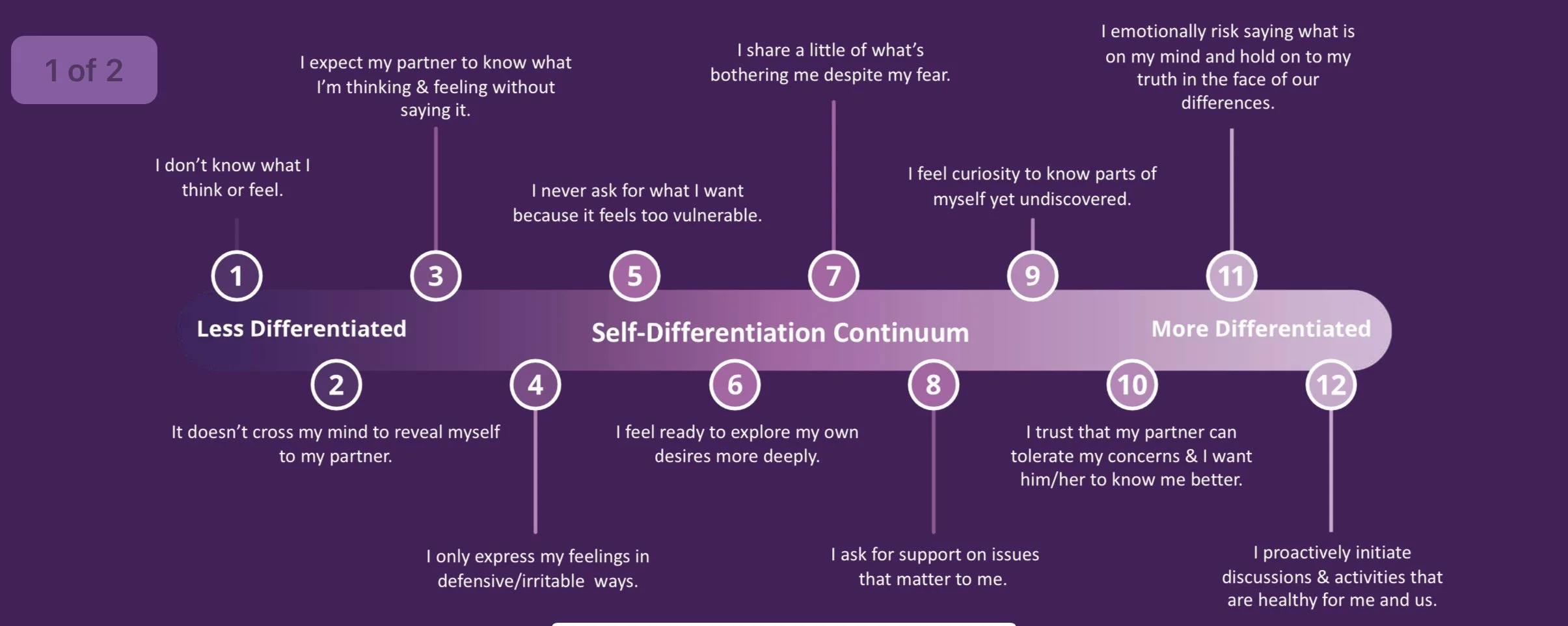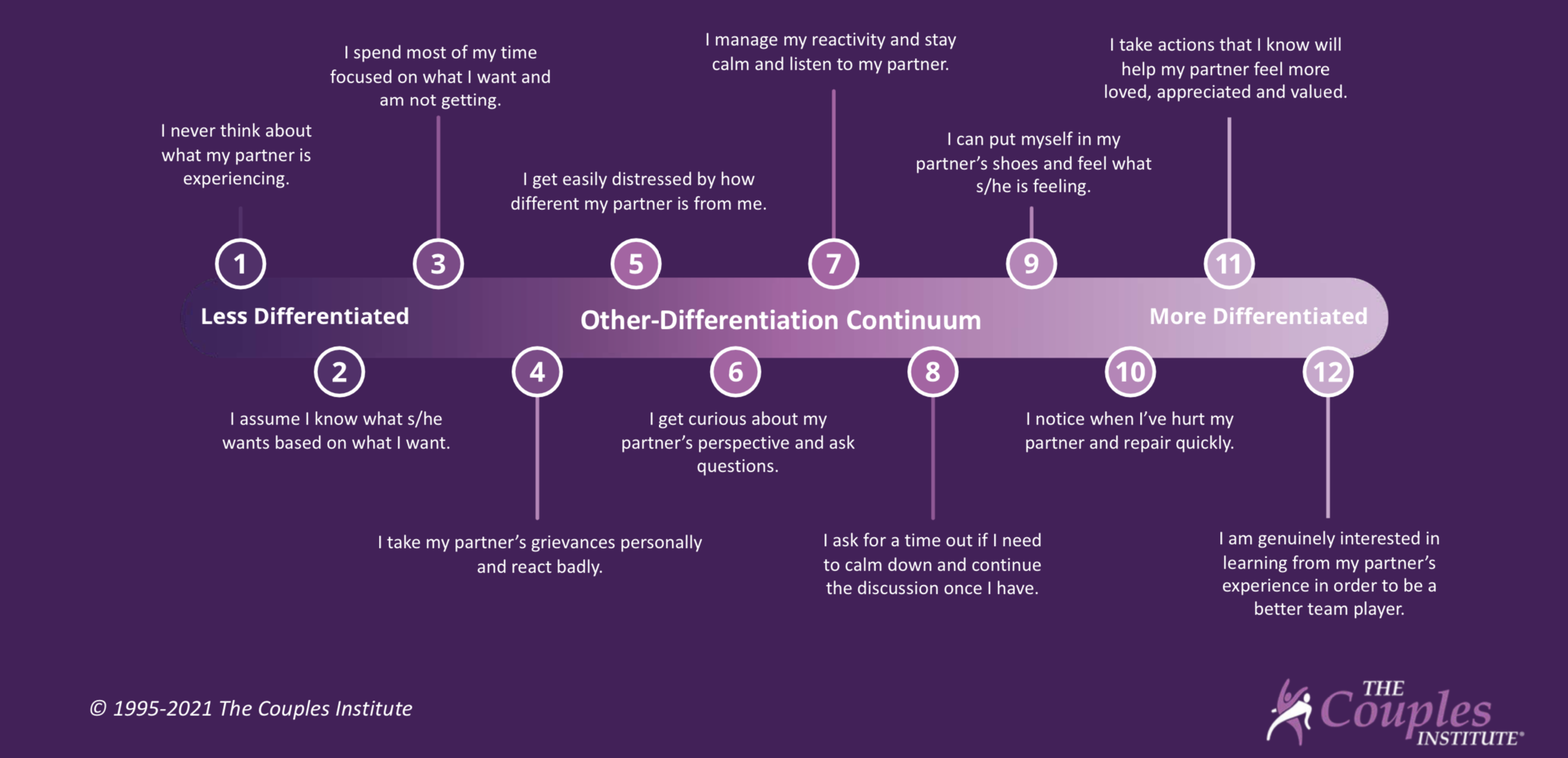With couples, friends, and family, I find this spectrum of relationship development a helpful guide to enlarging your internal capacity to compassionately and mercifully work with uncomfortable situations in relationships—Don.
Four Points of Differentiation
(Core Needs)
Based on these sources:
— Ellyn Bader, Ph.D. (Developmental Couple Therapy)
—David Schnarch, Ph.D. (Passionate Marriage)
—John and Julie Gottman (Gottman Institute)
Adapted by Don Elium, MA MFT
1. The Ability to Hang Onto Yourself
One of the significant ways you can know who you are is through your many answers to the question "What do I hold most dear in this situation," "What is most dear to me in my life," and "What is most dear to me in me?" These are your Core Needs. Not flexible. Non-negotiable. If you go against your core needs, you will have resentment and regret toward yourself and the ones you love. The more you can define yourself from these answers, the more you can hold on to yourself and your core needs when in conflict with or close to those who are important to you. You can discover and define your flexible and negotiable needs and bend from there to contribute to healing your partner and family to meet their needs.
2. The ability to self-soothe and regulate your anxiety.
The whole idea of self-soothing . . . The most loving thing you can do for the people around you is to put love into action. Regulate your anxiety; you are more able to act from the best in you instead of the worst. It gives those around you freedom instead of having to hang around to p. When you can drop yourself up or constantly move their needs and wants aside to help you manage your anxiety.
3. Learning to control your reactivity. Both over-reactivity and under-reactivity.
This allows you to be close. The degree we DON'T react ’T react and pause and time out when we do is the degree to whichto which we can be close and the degree we have a choice in how we respond instead of a knee-jerk reaction.
4. Learn to send compassion toward discomfort for growth, first toward yourself, then toward your partner.
Trying new things makes you uncomfortable. You feel you’re in a foreign land. You are. This requires practicing compassion and comfort toward your feelings in the "unfamiliar" to stay with your growth direction. To progress instead of regress. If you don't, you will resist the natural growth that relationship development brings and lose your freedom of choice and your connection to what you hold most dear.
Marriage and family twist around the worst of you to eventually make the best of you stand up.
“WHAT TO CHANGE? Your first THREE STEPS in an interaction with someone.
THE FIRST THREE STEPS OF an encounter. It is not just a series of emotions or issues; it is the THEME of HOW we interact with each other. Often determined in the first three steps each person takes.” —Bill Doherty, Discernment Counseling Approach.


